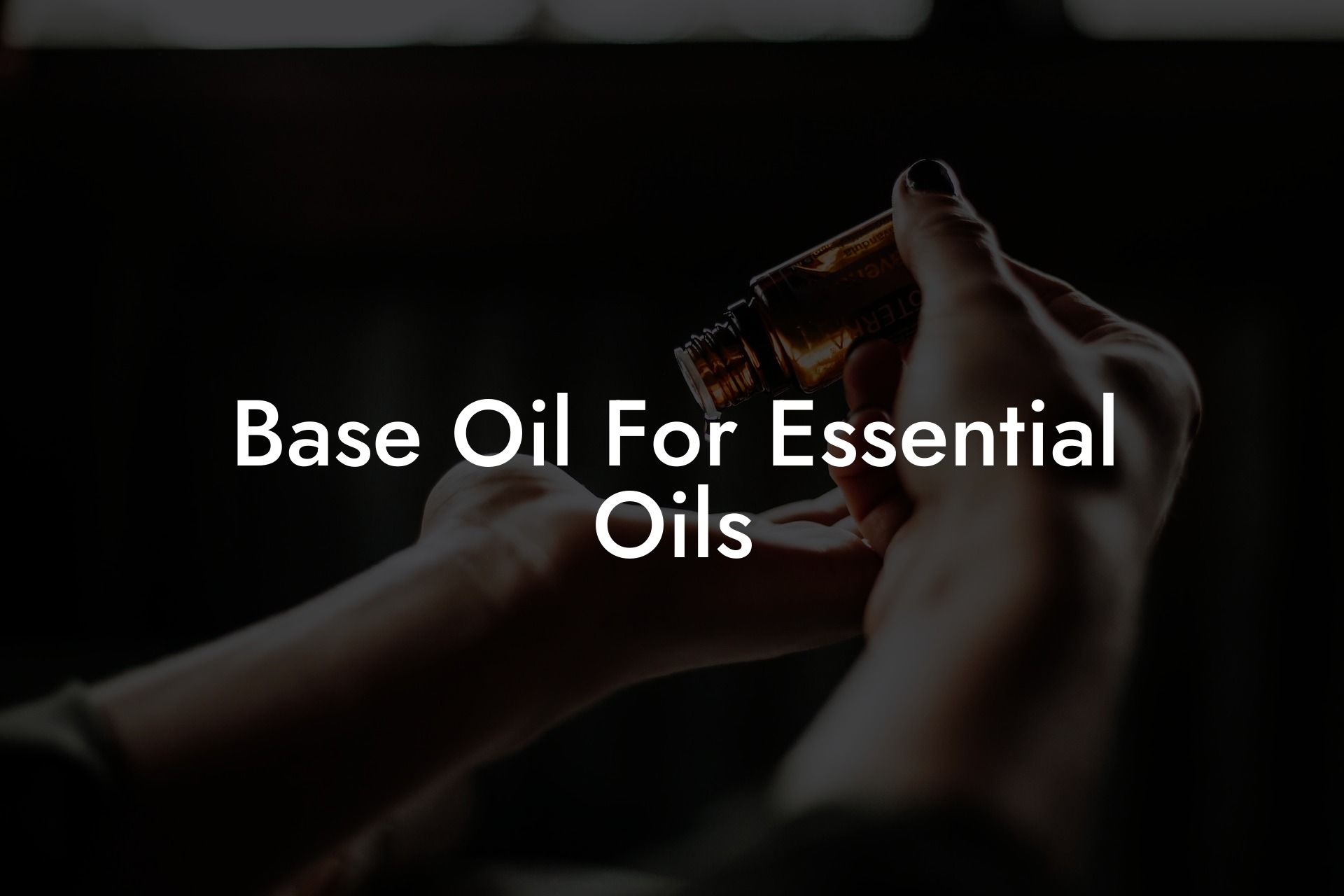Discover how to choose the perfect base oil for your essential oils and learn more about this vital aspect of your aromatherapy journey. Dive into the world of carriers as we explore the best bases for essential oils, their benefits and how to use them effectively.
Table of Contents
Understanding Base Oils
Base oils, also known as carrier oils, are the foundation of any essential oil blend. They act as a vessel for the essential oils to be safely applied to the skin or diffused in order to reap their benefits. These oils have their own properties and benefit a range of skin types and concerns. By understanding the different base oils available, you’ll be able to create customized blends that meet your individual needs.
Benefits of Base Oils
- Base oils help dilute essential oils to make them safe for topical application and reduce the risk of skin irritation.
- They extend the shelf-life of essential oils by slowing down the evaporation process.
- Carrier oils have their own therapeutic properties and can complement the overall benefits of your essential oil blends.
- They help spread essential oils over a larger surface area, ensuring proper absorption.
Choosing the Right Base Oil
Consider the following factors when selecting the best carrier oil for your essential oil blends:
- Skin type: Choose a carrier oil that matches your skin type and addresses your specific concerns. For example, jojoba oil is great for oily skin, while sweet almond oil is ideal for dry skin.
- Absorption rate: Some oils absorb more quickly than others. If you’re making an essential oil blend for massage, choose a carrier oil like grapeseed oil that absorbs easily. For a nourishing body oil, opt for a slower-absorbing oil like avocado oil.
- Odor: Some carrier oils have a distinct aroma that can interfere with the scent of your essential oils. Choose a base oil with a mild or neutral scent, such as fractionated coconut oil.
Popular Carrier Oils
Here are some of the most popular carrier oils used in aromatherapy and their main characteristics:
- Coconut oil: With its rich, hydrating properties, coconut oil is great for dry skin and ideal for massage applications. Opt for fractionated coconut oil, as it remains liquid at room temperature and has a longer shelf life.
- Jojoba oil: Technically a liquid wax, jojoba oil closely resembles the skin’s natural sebum and is well suited for all skin types. It absorbs easily, making it a popular choice for facial serums.
- Sweet almond oil: Rich in vitamins A and E, sweet almond oil nourishes dry skin and has a slightly sweet and nutty aroma. It’s a versatile carrier oil that can be used in a variety of applications, from massages to body oils.
- Argan oil: Known as ‘liquid gold’, argan oil is rich in antioxidants and essential fatty acids. It’s ideal for mature or aging skin and works well in facial serums and hair treatments.
Base Oil For Essential Oils Example:
Let’s say you want to create a nourishing body oil to help improve the overall texture and appearance of your skin. Start by selecting your carrier oil – in this case, we’ll use sweet almond oil for its hydration benefits. Next, choose essential oils that complement your base oil and target your specific needs, such as lavender for relaxation, frankincense for anti-aging, or rosemary for circulation. Blend your carrier oil and essential oils in a glass bottle, using a 2-3% dilution ratio (about 12-18 drops of essential oils per ounce of carrier oil). Massage your custom blend onto damp skin after a shower or bath for optimal absorption and enjoy the synergistic benefits of your thoughtful creation.
Now that you have a better understanding of the importance of base oils in the world of aromatherapy, you can confidently create custom essential oil blends tailored to your unique needs. Don’t forget to share this valuable knowledge with your friends and family, so they too can enjoy the benefits of essential oils in their daily lives. Be sure to explore the extensive Oshu Oils range for all of your essential oil needs, and dive deeper into the magical world of aromacology through our comprehensive guides on the Oshu Oils blog.





















